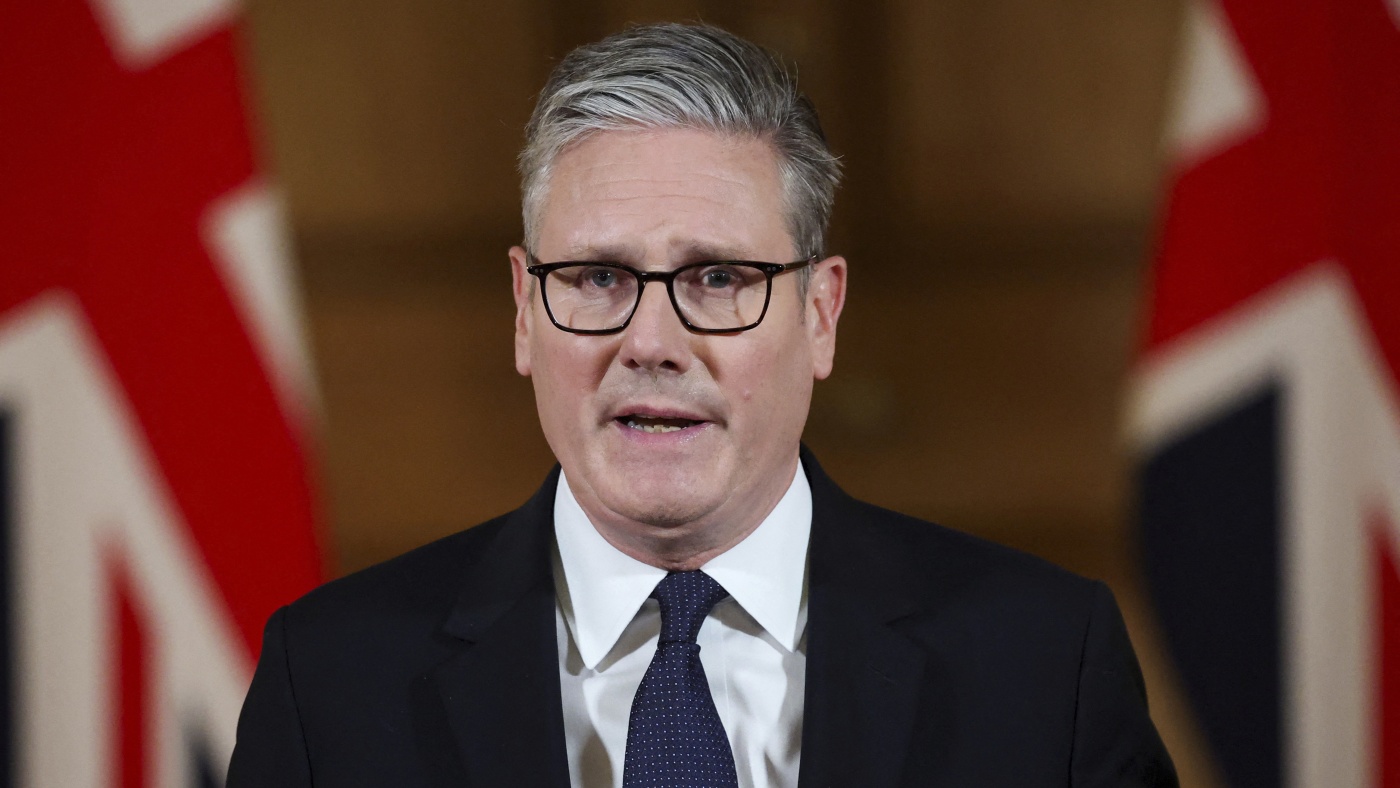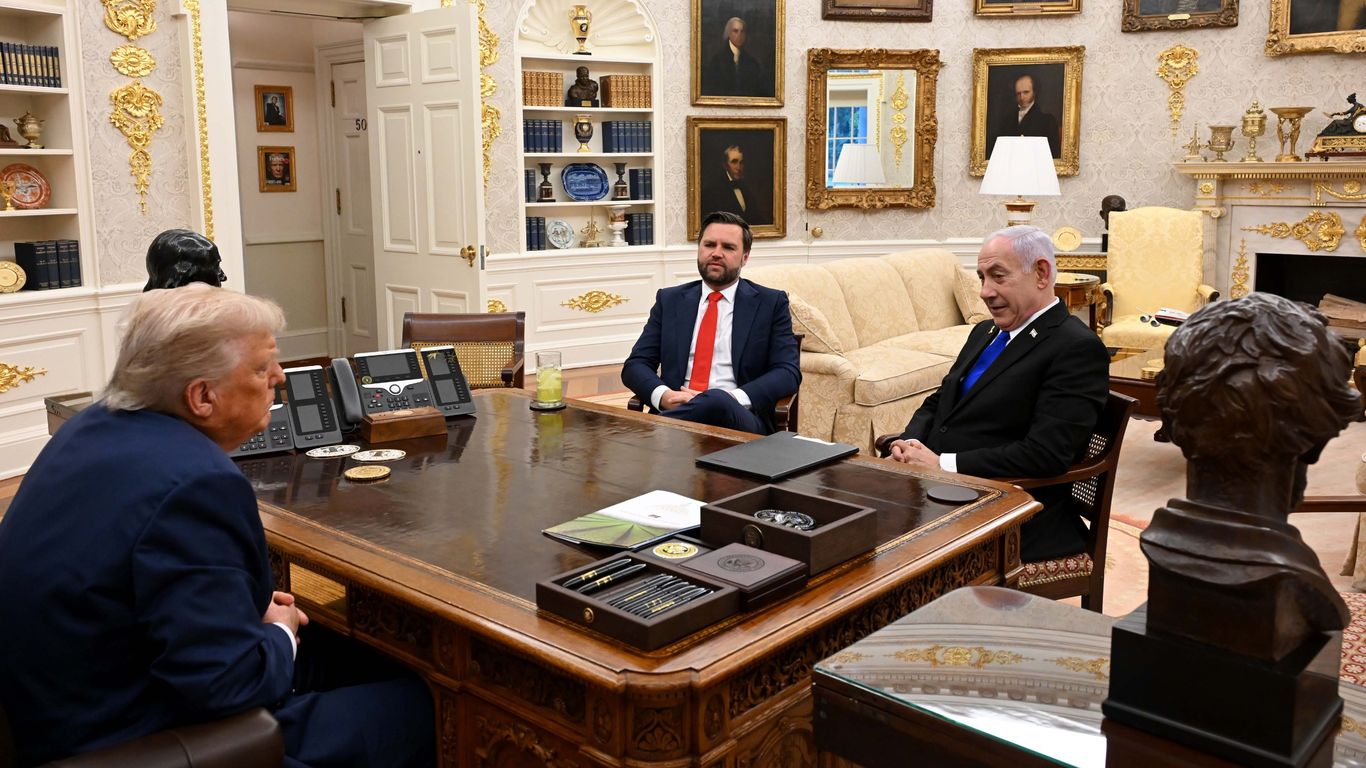U.N. Vote on Two-State Solution Sparks Controversy and Debate
#u.n. #israel-palestine #conflict #two-state solution #international community

Introduction
The recent U.N. General Assembly vote for a two-state solution to the Israel-Palestinian conflict has sparked controversy and debate worldwide. Despite strong opposition from the United States, the resolution was overwhelmingly endorsed, highlighting the international community's desire for a peaceful resolution to this long-standing conflict.
Key Details
The New York Declaration, which was adopted by the U.N. in 2016, affirmed the need for a two-state solution to the conflict. This was followed by a recent General Assembly resolution endorsing the implementation of this solution. The resolution also called for an end to the Israeli occupation of Palestinian territories and the establishment of an independent Palestinian state.
Impact
This vote has significant implications for both Israel and Palestine. While it is a major victory for the Palestinian people, it has been met with strong opposition from Israel and its closest ally, the United States. The U.S. has reiterated its stance against the resolution, stating that a two-state solution should only be achieved through direct negotiations between the two parties.
About the Organizations Mentioned
U.N.
The United Nations (UN) is a global organization founded in 1945 to promote international peace, security, development, and human rights. It was established following World War II to prevent future conflicts and foster cooperation among nations. The UN Charter was signed in San Francisco, marking the official start of the organization[1][2]. The UN's key roles include peacekeeping, conflict resolution, humanitarian aid, and setting international development agendas. One of its earliest successes was creating peacekeeping missions, such as the UN Truce Supervision Organization (UNTSO) in 1948, which monitors ceasefires in the Middle East[4]. The UN has also played a vital role in ending conflicts, exemplified by its mission in Sierra Leone, which helped rebuild the country after civil war by restoring governance, security, and social services[3]. A landmark achievement of the UN is the adoption of the Universal Declaration of Human Rights in 1948, which set the foundation for modern international human rights law and has been translated into over 500 languages[5]. The UN has also led major global health initiatives, including the eradication of smallpox through coordinated vaccination campaigns in the 1970s[1]. Its development efforts are embodied in the Millennium Development Goals (MDGs) launched in 2000 and their successor, the Sustainable Development Goals (SDGs), adopted in 2015 to tackle poverty, gender equality, public health, and climate change[1][2]. Currently led by Secretary-General António Guterres, the UN continues to focus on diplomacy, effective peacekeeping, and organizational reform to address 21st-century global challenges such as climate change, pandemics, and rising geopolitical tensions[2]. The UN also coordinates 15 specialized agencies that handle issues from economic development to pandemic response[2]. Notably, the UN combines diplomacy, humanitarian aid, and normative leadership to unite 193 member states, symbolizing collective hope for a more peaceful and equitable worl
United States
The **United States** is a federal republic and a global superpower, playing a leading role in economics, military strength, technology, and governance. It is a nation of approximately 348 million people as of 2025, characterized by its diverse population and dynamic economy[8][6]. Founded in 1776 following independence from British rule, the U.S. rapidly evolved into a major world power, especially after World War II, when its technological and economic investments solidified its global dominance[4]. Today, it remains the world’s preeminent military power, with 76% of Americans recognizing this status, while about half view it as the leading economic power globally, though China is seen as a rising competitor[2][3]. The U.S. government operates through a complex system that manages federal finances, taxation, social welfare programs, and trade policies. Recent legislative changes, such as the 2017 Tax Cuts and Jobs Act and the 2025 One Big Beautiful Bill Act, have shaped the tax landscape to influence economic growth, labor markets, and federal revenue[1]. Despite challenges like rising federal deficits projected to reach 6.9% of GDP by 2027, consumer spending remains resilient, and business investment is expected to grow steadily in 2025[5]. In governance, the U.S. is rated "Free" with a score of 84/100 by Freedom House, though concerns about democratic erosion and partisan conflicts persist[6]. Public trust and satisfaction with government services fluctuate, reflecting ongoing debates about policy effectiveness and institutional competence[7]. Technologically, the U.S. maintains a critical edge, underpinning its economic and geopolitical power. Experts warn, however, that technological dominance is not guaranteed indefinitely, emphasizing the need for adaptive policies and international cooperation to sustain leadership in innovation and global affairs[4]. Overall, the United States remains a pivotal force in global business, technology, and politics, balancing historic strengths with contemporary challenges in
















